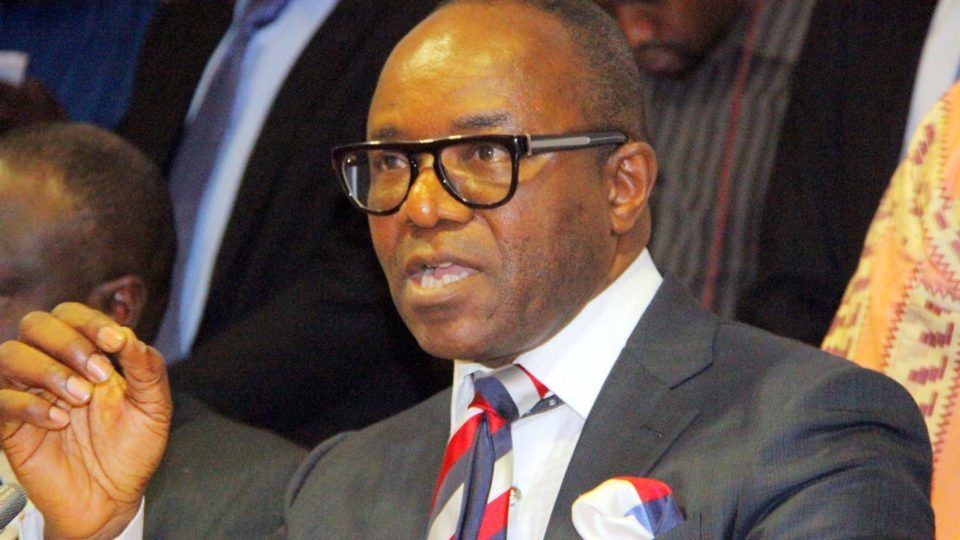
 Petroleum practice should allow states to be allocated specific acreages and then encouraged to enter into joint ventures to explore and exploit oil resources in the allocated acreages.
Petroleum practice should allow states to be allocated specific acreages and then encouraged to enter into joint ventures to explore and exploit oil resources in the allocated acreages.
This is among the recommendations of the Minister of State for Petroleum Resources, Dr. Emmanuel Ibe Kachikwu, in one of three books he authored and launched in Abuja with Vice President Yemi Osinbajo, state governors, legislators and oil moguls in attendance.
The whole idea behind the books, ‘Legal Issues in the Nigerian Petroleum Industry’, ‘The Petroleum Industry Bill: Getting to the Yes’ and ‘Compendium of Oil and Gas Cases in Nigeria’, according to the minister, was to draw attention to issues in the oil sector and seek potential resolutions.
Currently, oil activities in Nigeria are dominate by the federal government through joint ventures between NNPC and foreign multinationals while local independent companies operating in marginal fields account for the remaining.
But Kachikwu in the book titled, ‘Legal Issues in the Nigerian Petroleum Industry’, noted that allowing states to own these acreages will create the needed sense of ownership, equity and allow them break out of Nigeria’s choking unitary development.
The book, which was reviewed by Mr. Mike Igbokwe SAN, also devoted attention to “the issue of ownership and exercise of Nigerian government ownership powers” which he described as “a thorny and sensitive issue in Nigeria.”
It concluded that Nigerians should accept the legal position that ownership of the country’s petroleum resources lies in the federal government.
Responding to questions on whether his recommendation was a subtle response to Niger Delta agitators for them to be allocated oil blocks, Kachikwu said: “Currently FG owns the oil. What I was trying to do is to make it very clear that trying to challenge those nuances isn’t going to work. Because it will be difficult otherwise but then you can make provisions that enable assets and sharing of that sense of ownership by those who are producing the oil.
“It is not a reaction to anything it is simply an analysis of what the law is today and where the law should be going,” he explained.
